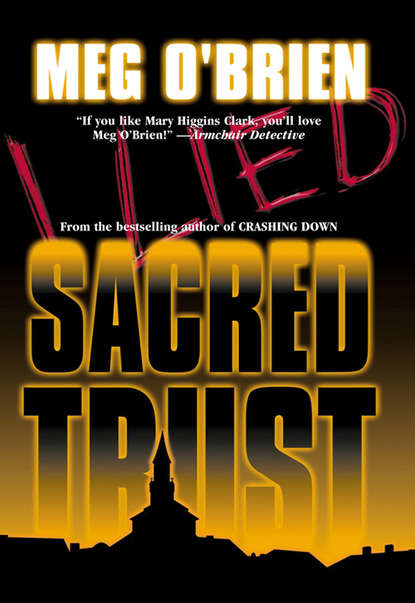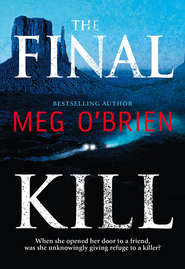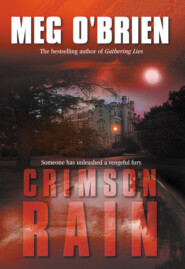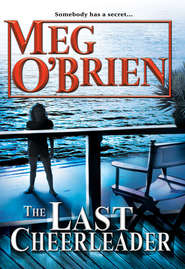По всем вопросам обращайтесь на: info@litportal.ru
(©) 2003-2025.
✖
Sacred Trust
Автор
Год написания книги
2018
Настройки чтения
Размер шрифта
Высота строк
Поля
I slam the door. Ben grinds the gears of his Explorer, pulling away from the curb. As I turn to my house, my heart, which is heavy, lifts momentarily at the thought of walking through the door and having a big ball of canine fluff jump into my arms.
Woman’s best friend—her dog.
3
Murphy isn’t at the door waiting for me, the way he usually is. While that worries me a bit, there have been times when he’s sneaked out with Frannie, my part-time housekeeper, and she hasn’t taken the time to find him and bring him back. Frannie has a family at home to feed at night, and she’s often in a hurry. Murphy doesn’t stay gone for long, at any rate. He likes keeping an eye on me, like a mom who thinks her toddler, once out of sight, must be up to no good. I figure he’ll show pretty soon.
Dropping my purse on a table in the hallway, I head for the kitchen, seeking a glass of wine. The kitchen sparkles in the late-afternoon sun, not only from Frannie’s cleaning but from sunlight on the sea. Tall windows look out on the Pacific Ocean from every room. A million-dollar view, people have called it. Six million would be more like it, in today’s market. For this—a house that cost less than a hundred thousand to build twenty years ago.
I have been envied for my house. Most of the homes in Carmel have names rather than addresses. Mine is called Windhaven. A major movie was filmed here in the fifties, and you can see Windhaven on the movie channel at regular intervals.
There is less beach now, of course, as the shoreline’s been eroded by recent storms. But the house and its view have been photographed by Better Homes and Gardens, Sunset and Architectural Digest. When Jeffrey and I were first married we moved here and opened Windhaven for tours during the Christmas season. That was before Clint Eastwood won his run for mayor of Carmel. Jeffrey, who dabbles in real estate, but whose obsession is politics, was working with Eastwood’s advisors pre-campaign, and we had tons of friends then—artists, writers, actors, politicians. We decorated with holly garlands and strung lights on everything, including the stately pines along the drive. A wild patch of lawn stretches out from the terrace of Windhaven to the cliff, and along the edge of the cliff are Monterey pines that Jeffrey and I planted as windbreaks. In terms of trees they are still infants, yet already they lean to the south from the north winds that buffet them all winter long. If one were to look carefully, one might detect how Jeffrey and I lean, as well, from the buffeting our marriage has taken over the years.
At what point, I wonder, taking a wineglass from the rack beneath the top cupboard, does a marriage begin the downward slide? At what point does it go from holding hands while walking, eyes meeting across the room in a secret, knowing smile, and an occasional embarrassing gush, “Jeffrey is everything to me”? When does the steady feel of aloneness set in for good, not just now and then? And when the distaste for flesh once loved and sought after?
It is, I think, a question—or whole slew of them—that only a decent glass of Seven Peaks can answer. I reach into the double-door refrigerator and pull out a bottle of my favorite Chardonnay. Opening it, I fill my glass and decide to take the whole bottle to the living room with me. What the hell, it’s been a rotten day.
And there is still the coroner’s office to come. I glance at my watch and note that it’s not even five o’clock, and I can’t see Marti till ten. What am I going to do with the next five hours?
In the living room I sit in an overstuffed chair, staring out the window. Not at the sea, which only makes me feel more alone, but in the opposite direction, at the street. People walk by on Scenic, many of them with their dogs. I am irritated that Murphy isn’t here. Why did he have to run off today of all days?
No. The real question is, Why did Marti have to die today? That’s the source of my anger, not Murphy. Not Ben.
Why is my friend dead?
And who would have had reason to do it in just that way? The hideous makeshift cross was crafted, Ben said, of four-by-fours from a house under construction at the bottom of the hill. Who had the strength to drag those four-by-fours to that spot far up the hill, nail them into a cross and then plant them in the ground—much less with Marti’s weight added to them?
Who would have been evil enough to paint those awful letters on her chest? And the final, inevitable question—why is the Secret Service involved?
The more questions I come up with, the less answers there seem to be. Nothing works today. Not sex, not wine. Chilled, I set my glass down and cross to the fireplace, laying paper and kindling, then logs. I strike a long match and watch the fire catch then build, warming my face. Sinking to the floor, I sit beside the only heat I’ve found this day. Outside, the rain begins again. I hear it strike the copper chimney flashing, the pitter-patter growing to a pounding, like nails, like nails in a cross, like nails…
It is only now that I am able to think about the rest of it, the thick, blunt construction nails tearing through her palms, the blood from them draining through the strips of cloth that held her wrists and ankles in place. But the alcohol has loosened everything I stuck way back there and had hoped to forget.
Huddling on the rug before the fire, I allow my body the fetal position it’s been wanting all day, and at last the tears come. There’s no one to hold them back for, now. There are perks when one lives virtually alone. One can cry anytime, and there’s no one around to hear.
Sometime after six I awaken from the stupor I’d cried myself into and make my way around the house, closing blinds and turning on lights. I wonder again where Murphy is and am more worried now than irritated. This isn’t like him. A blend of German shepherd and chow, he has a huge appetite, and by five-thirty he will usually come loping along the street and up the path, looking for food.
I miss his being here. Murphy is the one thing that got me through the worst of the bad times with Jeffrey. He has the pointed face of a shepherd, but around the neck he looks like a lion, especially when he sits in a lion-like pose at the top of the stairs, which he does every night, outside my bedroom door. A born protector, he won’t leave that spot till I head downstairs in the morning.
Going to the phone, I call Frannie, my housekeeper, at home. When she picks up, I hear children in the background, a big, noisy house full of laughter and good times. As often happens, I feel a pang of jealousy. I think Frannie knows this; she looks at me sadly sometimes, aware that, though I have more money, she has more love. This should create some sort of balance between us, but it doesn’t. “Money,” I heard Frannie tell a friend on the phone one day, “might make a nice down payment. But it sure can’t beat a good man.”
“Frannie, did Murphy get out when you were here today?”
“No,” she answers between calls of, “Get off that, right now, young man! Didn’t I tell you not to walk on the tables?” Her youngest, Billy, has Attention Deficit Disorder. His favorite pastime is performing circus-like stunts on the furniture, when he isn’t jumping from the loft in the living room.
“What’s wrong? Isn’t Murphy home?” she asks. “He was there when I left.”
“Are you sure? I don’t see how he could have gotten out. Did you close the door tight?”
“Of course,” she says, then, “No! I said absolutely no cookies. Dinner’s just about ready.”
I hear the exasperation in her voice, as it is building in mine. If Frannie is half this distracted when she’s here, I am thinking, it’s no wonder Murphy got out.
“Abby,” she says, “maybe he’s up in the attic, sleeping. I did go up there just before I left, with some things I wanted to store away. Maybe he was up there and I didn’t realize it and locked him in.”
“That’s probably it,” I agree, relieved. “I don’t know why I’ve been so worried about him. Just a feeling, but you know how it is.”
“Sure. I do that with Billy. He drives me to distraction, but just let something the least bit odd happen, and I’m a crazy lady.”
We both laugh. “Well, thanks. Sorry to have disturbed you.”
“That’s okay. Let me know, though, will you? I’ll sleep better when I know you’ve found the Murph. Oh, and Abby.” She lowers her voice. “I heard about that awful thing on the hill today. She was a friend of yours, wasn’t she?”
“Yes.”
“God. I’m so sorry. Are you okay?”
“I will be. I guess it takes time.”
“That’s for sure. When I lost Will…well, you know.”
“Yes.”
Frannie has a boyfriend now, but I remember how long it took her to get over the loss of her husband, and how much his traffic accident haunted her, making her unable to drive for weeks. She needed the money she made cleaning, though, and I arranged my schedule on cleaning days to pick her up and take her home at night. The time we spent in the car together helped us to bond. We became friends.
“So, anyway, let me know.”
“I will, Frannie. Thanks.”
Hanging up, I head immediately for the attic. Something about this still doesn’t feel right, however. If Murphy were in the attic, he’d have barked when he heard me come in, or at least be whining by now for dinner. There is something wrong, something terribly wrong.
My worries prove to be founded when no Murphy comes barreling from the attic as I open the door on the second-floor landing. Still, I go up there, remembering that once he fell asleep for hours on a pile of old winter blankets.
Flicking the light switch on the wall at the top of the stairs, I stand in a narrow pool of light. One of the bulbs on the two-bulb fixture has burned out, and only a small area is illuminated, a circle of perhaps five feet around. It has the effect of spotlighting me, while the rest of the attic remains in the dark.
I fold my arms tightly around myself as wind creaks the eaves. Old movies fill my head, and I imagine that someone watches from a dark corner, waiting to do those same things to me that have been done to Marti. I tell myself I am being silly, that my fear is only a hangover from seeing Marti that terrible way, an image that will probably forever be imprinted on my brain. Forcing myself to speak, I call out for Murphy. “Here, boy. Where are you? Murph? Are you up here?”
No answer.
Another creak of wood, this time from the far end of the attic, where I can’t see a thing. “Murph? Is that you? Murphy, come here!”
My voice is shaking now, and I can’t decide whether to go to the end of the attic and look, or run. Damn! Why didn’t I bring a flashlight?
Because there was no reason to think I’d need one. That other bulb wasn’t burned out the last time I came up here, I’m certain it wasn’t. I look at the light again, squinting, and for the first time I see that the bulb has not simply burned out, it has been removed.
The old celluloid scenes roll on: a heroine tiptoes down the stairs into a dark, dank cellar with a candle, electricity out because of a storm, thunder crashing, the killer waiting for her at the bottom, knife up-raised. I hear myself yelling silently, “No, don’t! Don’t go down there, dummy! How stupid can you be?”
God, I hate those movies.









